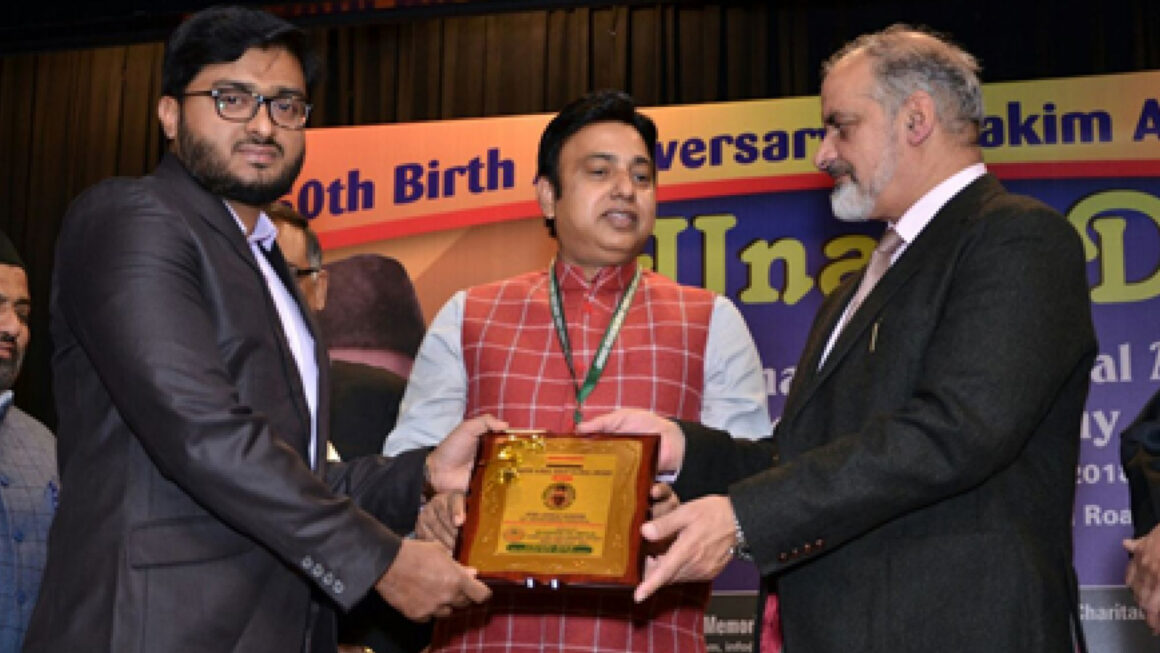Awarded for recent work in HIV- Molecular virology: Detection of HIV proviral DNA in the urine pellet; a breakthrough tool for monitoring Anti-HIV therapy
Syed Zafar Islam, National Spokesperson, India, presenting the Hakim Ajmal Khan Global Award to Sayyed Ashraf, CEO, Hootone Remedies, for the new upgraded formulation for HIV/AIDS held in Feb, 2018 at New Delhi
Monitoring the dynamic change of infected CD4+ T cells in urine pellet with the new upgraded HOO-IMM PLUS treatment
(Feb 2018, HBRL Molecular Diagnostic & Genetic Research Centre)
As of now, the antiretroviral therapies helps to reduce the amount of HIV plasma viral RNA in the body, allowing sufferers to lead a relatively normal life.
However these drugs usually work against actively-replicating viruses, so they can’t target so-called latent HIV, which can hide in cellular reservoirs. Latent HIV can remain hidden in the body for years, before suddenly becoming active and producing HIV. Therefore, to fully eradicate the virus, HIV infected cells or proviral DNA, needs to be targeted.
Agents that reverse latency have already been discovered, but the problem faced by scientists is how to effectively kill the infected cells once it has been activated.
The new upgraded HOO-IMM PLUS combination inhibits binding interaction of GP120 & CD4 cells, thus blocks the initiation and progression of HIV life cycle. Also it targets the infected cell through cell-mediated immune response and expels it through feces and urine.
The research has been initiated with fresh urine pellets from human immunodeficiency virus type 1 (HIV-1) seropositive individuals undergoing the new upgraded HOO-IMM Plus treatment was examined for the presence of the HIV-1 genomic sequence.
By using the Taqman Realtime based polymerase chain reaction technique, HIV-1 DNA Proviral load detected in all of 56 patients (100%) fresh urine pellets from HIV-1-seropositive individuals, while urine pellets from all 56 patients prior to the treatment (drug naïve) were detected about 2 of 56 patients (3.5%). HIV-1 Proviral for healthy heterosexual controls was negative.
These results indicate that HIV-1 proviral output has been concentrated in urine pellets for HIV-1-infected individuals undergoing the new upgraded HOO-IMM Plus, an Anti HIV herb drug.
Gut-Associated Lymphoid Tissues (GALT) is very important in HIV pathogenesis. GALT is the largest single immunologic organ in the body, containing a large amount of lymphocytes. Contrast to the blood and other organized lymphoid tissues, which contain abundance of naive resting T cells, a majority of the CD4+ T cells that reside in GALT are CCR5 positive, activated memory CD4 T cells.
We hypothesize that during the new upgraded HOO-IMM Plus treatment for HIV-1 infection, HIV-1 infected CD4+ T cells constantly shed from GALT into the intestinal lumen and are discharged in feces and urine. Therefore, the amount of HIV-1 and CD4+ T cells contained in the feces and urine could reveal the degree of pathogenesis in GALT. Monitoring the dynamic change of infected CD4+ T cells in urine pellet of infected individuals is very important to evaluate disease progression.

